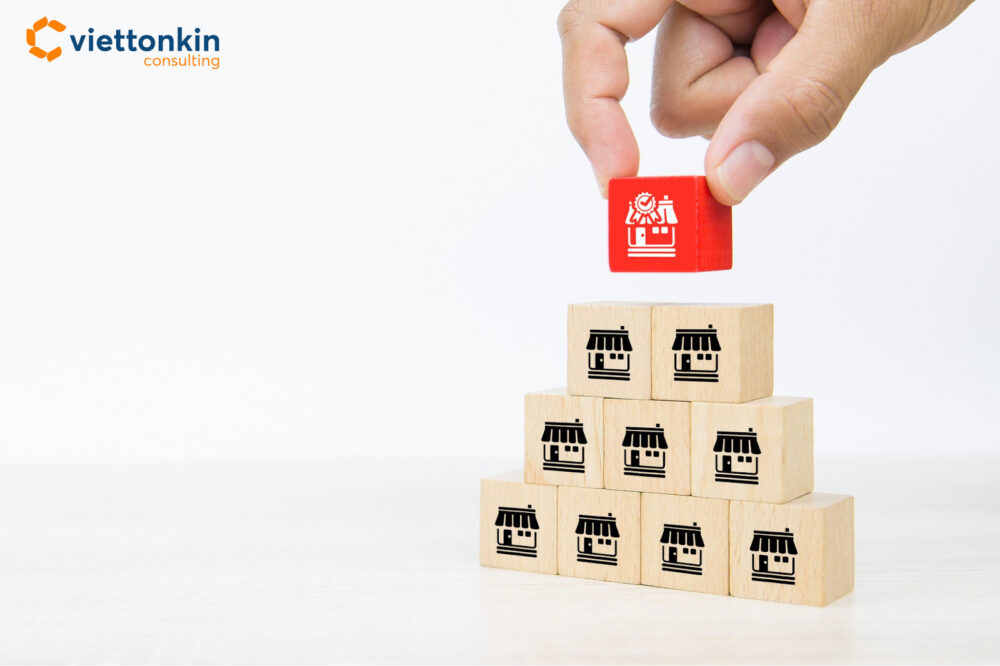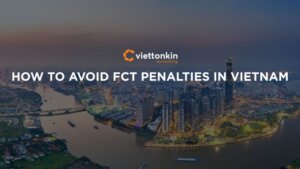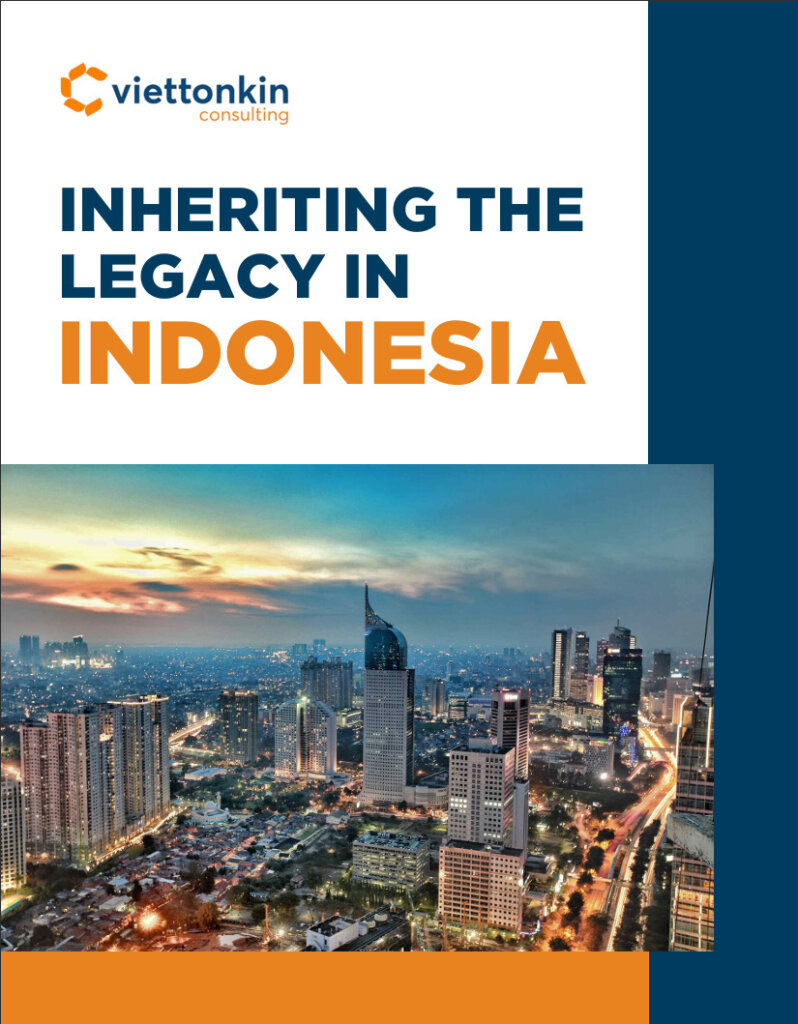Vietnam's rising middle class and strong demand for quality early education have created a fertile market for kindergarten franchising. However, many foreign investors are deterred by complex licensing procedures and regulatory uncertainty. Vietnam's legal framework is highly attractive, permitting 100% foreign ownership of preschools. On the other hand, the primary challenge lies in combining the […]
Vietnam's rising middle class and strong demand for quality early education have created a fertile market for kindergarten franchising. However, many foreign investors are deterred by complex licensing procedures and regulatory uncertainty.
Vietnam's legal framework is highly attractive, permitting 100% foreign ownership of preschools. On the other hand, the primary challenge lies in combining the required education licenses with franchise registration. This guide decodes the essential legal strategies to help global education brands enter this dynamic market effectively.
As a leading regional FDI advisory firm, Viettonkin Consulting possesses deep expertise in education licensing and franchise law, ready to turn these complexities into your competitive advantage.
Understanding The Franchise Framework In Vietnam’s Education Sector

The Legal Definition Of Franchising
Under Vietnam's Commercial Law 2005 and Decree 35/2008/ND-CP, franchising is a commercial activity where a franchisor grants a franchisee the right to operate a business under their established brand.
A critical first step for any foreign brand is to register the franchising activities with the Ministry of Industry and Trade (MOIT) before commencing operations.
The Dual-Licensing Challenge
The primary challenge is navigating two sets of laws simultaneously: general franchise regulations and specific education laws under Decree 86/2018/ND-CP and the updated Decree 125/2024/ND-CP.
This creates a dual-licensing hurdle, requiring approvals from both the MOIT (for franchising) and the Ministry of Education and Training (MOET) (for school operations).
How International Brands Can Qualify As A Franchisor
To be eligible, your franchise system must have been operational for at least one year globally. You must also provide robust documentation proving IP ownership and brand legitimacy.
According to Vietnam Briefing's (2024) article, "Franchising in Vietnam: Legal Framework and Registration Requirements," the requirements for early education are stricter, demanding proof that your curriculum and safety protocols align with Vietnamese standards.
Step-by-Step Licensing And Registration Procedures

Step 1: Franchise Registration with MOIT: Prepare your disclosure documents, business certificate proof of brand operation, and a sample franchise agreement. A key tip is to pre-certify your intellectual property with Vietnam's IP Office to accelerate MOIT approval.
Step 2: Investment and Enterprise Registration: Obtain an Investment Registration Certificate (IRC) and an Enterprise Registration Certificate (ERC) from the local Department of Finance.
Step 3: Education Institution Licensing: As detailed in the 2019 Vietnam Law Magazine article, "How to establish kindergartens in Vietnam" the process involves two key approvals: first, securing a Decision on Establishment from the local People's Committee, followed by an Education Operation License from the Department of Education and Training. The application is extensive and requires:
- Proof of site control, such as a land use rights certificate or a lease agreement with a minimum term of five years.
- Legal confirmation of the investment capital managed by the school to prove its legitimacy.
- The preschool's official statutes of organization and operation.
- A complete list of qualified key personnel and teaching staff.
- Proof of suitable facilities that meet specific standards, including minimum space requirements of 8 m² per child (urban) or 12 m² per child (rural).
Step 4: Work Permits and Local Compliance: All foreign teachers must hold valid work permits. Your franchise's operational handbooks must also align with Vietnamese labor laws and child welfare regulations.
Structuring The Business For Expansion And Risk Control
Direct Franchising And Subsidiary Franchising Models
A 2022 legal analysis by ACSV Legal highlights this strategic choice:
- Direct Franchising: Offers faster market entry but carries higher risks related to Foreign Contractor Tax and complex cross-border contract enforcement.
- Subsidiary Franchising: Involves a higher initial setup cost but provides superior local control, streamlined tax compliance, and easier dispute resolution under Vietnamese law.
Investment Requirements: Franchisor And Franchisee
It is crucial to distinguish the capital obligations between the two parties:
- For the Franchisee (The Operating Entity): The minimum investment is approximately VND 30 million per child (excluding land). In the case of private kindergartens that do not build new facilities but only rent or use existing facilities to carry out activities, this figure is at least 70% of the amount mentioned above.
- For the Franchisor (The Brand Owner): Vietnamese law imposes no minimum investment capital requirement on the foreign franchisor, making the model highly attractive and capital-efficient for brand expansion. However, foreign investors need to pay attention to choosing the appropriate registered capital level to ensure the feasibility of the project.
Managing IP and Brand Consistency
Register your trademarks in Vietnam early. Use a comprehensive master franchise agreement with clauses for mandatory training and quality audits to ensure curriculum integrity across all locations.
Market Outlook And Strategic Recommendations

Market Demand Drivers
Rising incomes and a government push for higher educational standards are key growth drivers. Major cities like Hanoi, Ho Chi Minh City, and Da Nang are seeing annual preschool enrollment growth of 10-15%.
Strategic Entry Tips
- Pilot First: Begin with a single, wholly-owned or joint-venture pilot school to validate your model and build local trust.
- Scale Later: After 2-3 years, transition to a sub-franchising model for scalable expansion.
Operating a model school first is the most effective strategy to boost brand credibility and attract high-quality franchisees for long-term, sustainable growth.
Conclusion: Turning Compliance Into Competitive Advantage
Success in Vietnam's kindergarten franchise sector is not just about having a great brand; it's about blending legal precision with an adaptive business strategy. Forward-thinking investors should view the licensing framework not as a barrier, but as a clear roadmap for building a credible, profitable, and long-lasting enterprise.
Navigating this process can be complex, which is why partnering with experienced advisors can turn compliance into your greatest growth edge.You may also like: Vietnam’s Attractive Preschool Market: A Magnet for Visionary Investors












